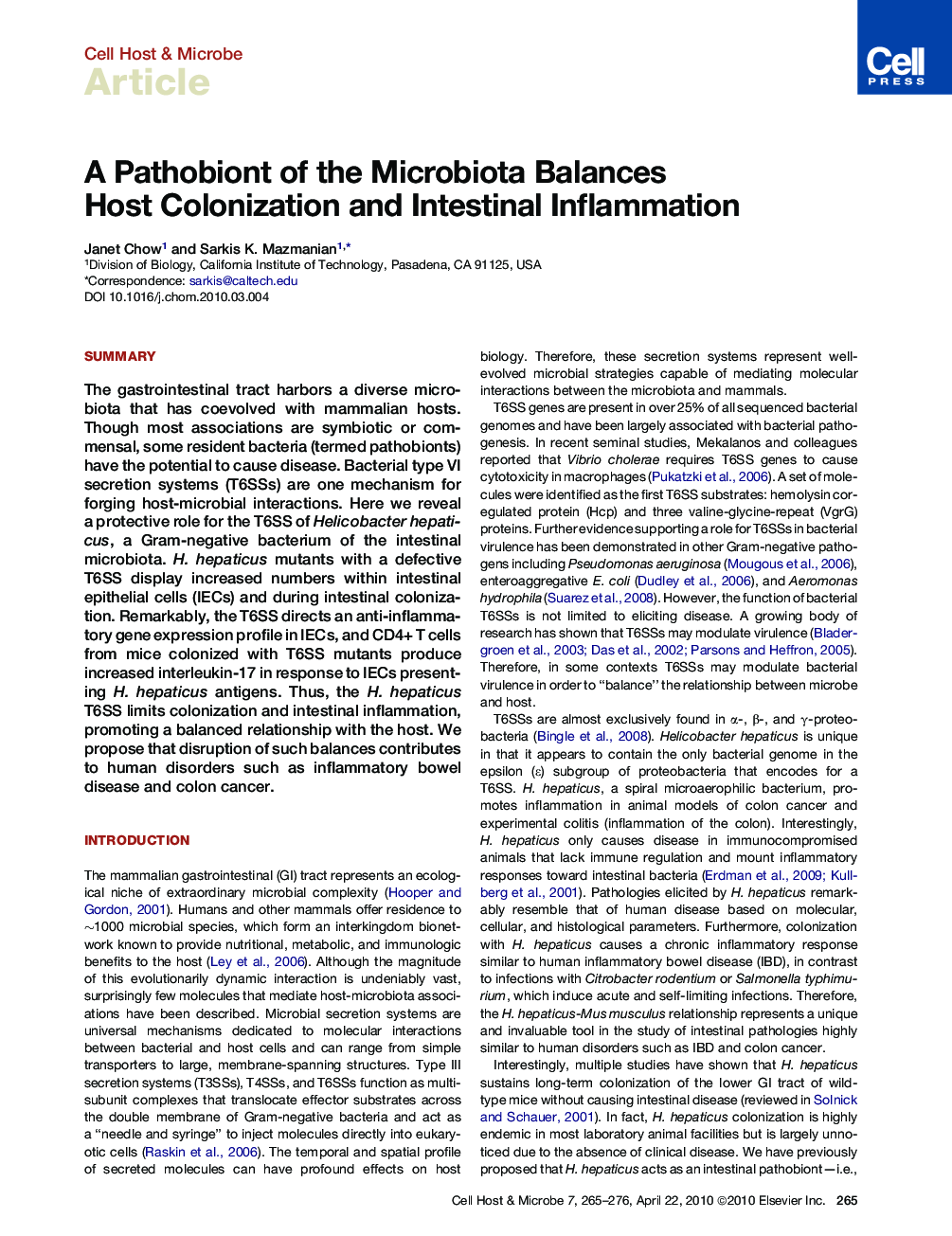| Article ID | Journal | Published Year | Pages | File Type |
|---|---|---|---|---|
| 4361563 | Cell Host & Microbe | 2010 | 12 Pages |
SummaryThe gastrointestinal tract harbors a diverse microbiota that has coevolved with mammalian hosts. Though most associations are symbiotic or commensal, some resident bacteria (termed pathobionts) have the potential to cause disease. Bacterial type VI secretion systems (T6SSs) are one mechanism for forging host-microbial interactions. Here we reveal a protective role for the T6SS of Helicobacter hepaticus, a Gram-negative bacterium of the intestinal microbiota. H. hepaticus mutants with a defective T6SS display increased numbers within intestinal epithelial cells (IECs) and during intestinal colonization. Remarkably, the T6SS directs an anti-inflammatory gene expression profile in IECs, and CD4+ T cells from mice colonized with T6SS mutants produce increased interleukin-17 in response to IECs presenting H. hepaticus antigens. Thus, the H. hepaticus T6SS limits colonization and intestinal inflammation, promoting a balanced relationship with the host. We propose that disruption of such balances contributes to human disorders such as inflammatory bowel disease and colon cancer.
► Helicobacter hepaticus encodes a type VI secretion system, T6SS ► T6SS mutants display greater intestinal colonization compared to wild-type bacteria ► T6SS mutants elicit increased inflammation in an experimental model of colitis ► H. hepaticus T6SS “balances” host interactions, which may prevent intestinal dysbiosis
